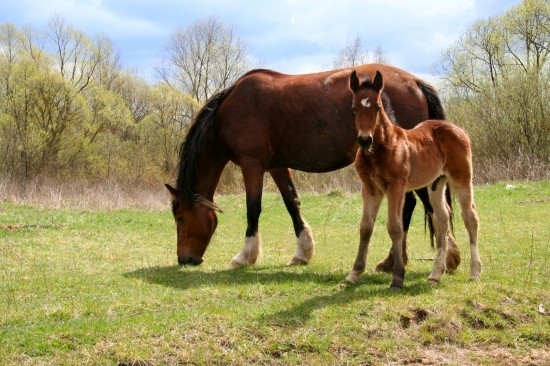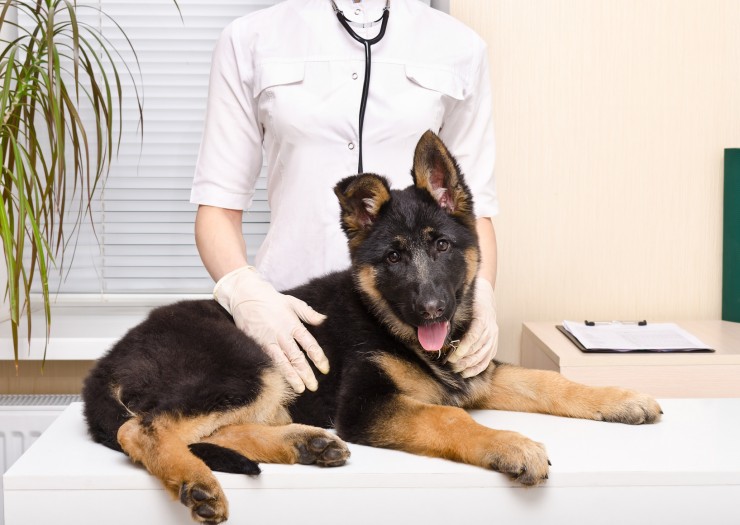
Mange is an unsightly and unpleasant smelling illness. Mange, however, is more likely to be the result of a weak immune system rather than uncleanliness or filth which is a common, although mistaken, belief.
There are essentially four types of mange: Demodectic Mange (Demodex), Sarcoptic Mange, Notoedric Mange (found in cats), and Cheyletiella Mange. Of the four types of mites that cause mange, the two most common mites found in outbreaks of mange are the Demodex mite and the Sarcoptic mite.
Demodectic Mange is triggered when tiny mites that are always present on your pet and live in the hair follicles of dogs and cats begin to multiply--usually due to a weak immune system. These mites remain dormant unless the pet`s immune system becomes weak from such factors as a poor diet, antibiotics, or age factors.
Sarcoptic Mange is caused when mites that burrow into the skin of cats and dogs begin to multiply; Sarcoptic Mange is commonly referred to as Canine Scabies. This type of mange is apparent by hair loss, sores, and itchy skin conditions. These mites have a short life span and the condition is highly contagious.
The other less common mites (Notoedric and Cheyletiella) usually manifest into symptoms that look like dandruff. The Notoedric mange (again, found only in cats) is a highly contagious type of mange and should be treated immediately before the condition spreads to other cats or becomes more serious.
Outbreaks of mange can also be sparked by poor diet and lower intestinal flora levels sometimes brought about when dogs are given antibiotics for other illnesses. Puppies and older dogs are more susceptible to mange outbreaks. Puppies are often at risk because their immune systems are under developed; older dogs tend to show signs of a weaker immune system due to age and are in need of immunity support supplements to safeguard against mange and other illnesses.
All natural pet supplements, such as Antioxidant Treats, Ox-E-Drops, Sprouted Granules, and Black Leaf Tincture, can be an important addition in the reconstruction of a healthy immune system in your pet. These products also support healthy digestion in your pets and can help supplement the healing process for mange outbreaks; however, always consult your veterinarian for advice on treatments for mange. Home remedies found on the internet are often false and can be dangerous to your pet`s health.
Once you take the proper steps to get the mange infestation under control, pet owners should look for solutions to supplement a healthier immune system in their pets. This will help guard against further outbreaks and assist in the healing process of the current condition.
Article submitted by Tim Delaney, a multiple dog owner. References include Nzymes and Nzymes Pet Products
 Learn to How to Control the Aggressive Behavior of Dogs!
Learn to How to Control the Aggressive Behavior of Dogs!
Learn to How to Control the Aggressive Behavior of Dogs!
Learn to How to Control the Aggressive Behavior of Dogs!
 Beagle Pain Syndrome
Beagle Pain Syndr
Beagle Pain Syndrome
Beagle Pain Syndr
 Staying Safe When Walking Your Dog
Staying Safe When
Staying Safe When Walking Your Dog
Staying Safe When
 Managing Young Horses
Managing Young Ho
Managing Young Horses
Managing Young Ho
 My Puppy Has Hip Dysplasia, What Should I Do?
My Puppy Has Hip
My Puppy Has Hip Dysplasia, What Should I Do?
My Puppy Has Hip
Copyright © 2005-2016 Pet Information All Rights Reserved
Contact us: www162date@outlook.com